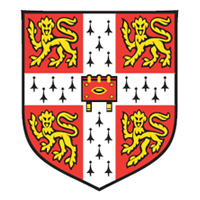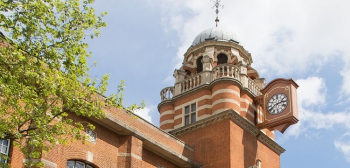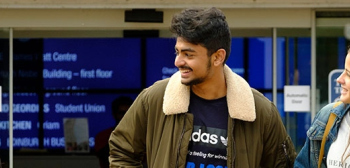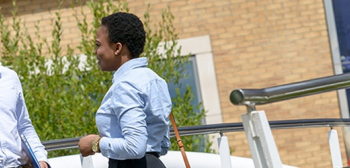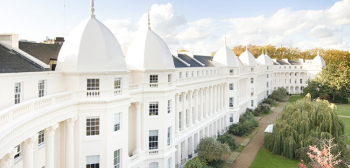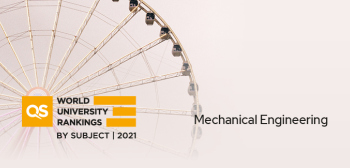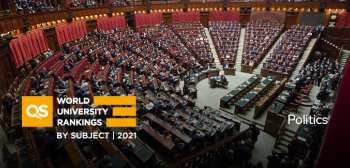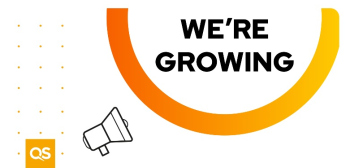- #6 QS Global World Ranking
- PublicStatus
- Very HighResearch Output
- 22,975Total Students
- 5,527Faculty
- 7,309Int'l Students
The University’s position in the current QS World University Rankings.
Whether the University is funded by the government of that country or state, or funded by private donations.
The research intensity of the University, based on the number of papers output relative to the University’s size.
The number of full time equivalent students enrolled at the University.
The number of full time equivalent teaching staff employed by the University.
The number of full time equivalent international students enrolled at the University.
University of Cambridge
About
Attracting the best minds since 1209, the University of Cambridge is home to 7,500 graduate students who are working towards a master’s or doctoral degree. Half of them come from overseas to study in the famous medieval city, and more than 40 percent are women.
All in all, there are around 330 postgraduate programs available to study at Cambridge. Students can choose from taught or research-based masters’ degrees, lasting nine to 12 months full-time in subjects ranging from adult education to zoology, with predominantly research-based PhDs lasting three to four years full-time, and up to seven years part-time.
Full-time masters’ programs are notoriously difficult, requiring students to up their game considerably from undergraduate level. In preparation for postgraduate study, applicants are advised to thoroughly research their program and ideally attend an open day, which take place on campus and include opportunities to speak with the current crop of postgraduate students.
Visiting the university may also help applicants decide on which college they want to apply for. To apply, candidates must upload academic references, university transcripts, a research proposal, GRE scores, an up-to-date resume, and, in some cases, samples of written work. All of this is submitted to Cambridge’s online portal as part of the application process. International applicants must also provide evidence of competency in English.
Tuition fees include teaching, supervision, student support and access to university and college facilities. They vary between courses, but as a rule expect to pay around £11,000 (US$15,395) for a one-year MPhil (master’s) course (certain courses that lead into professions such as corporate law, economics or the Master of Business Administration charge considerably more) and £8,100 (US$11,336) for each year of PhD study.
Overseas students are required to pay more, typically around £24,000 (US$33,588) for a one-year MPhil program, and up to £30,000 (US$41,985) for each year of PhD study.
There are many funding opportunities at Cambridge from a wide variety of sources including the Cambridge Trust, which awards approximately 500 scholarships annually, and Gates Cambridge, which awards around 100 postgraduate scholarships each year in any subject.
Applying for these funding opportunities is easy, with 80 percent of funding opportunities awarded last year simply requiring applicants to fill in the relevant section of the Cambridge application portal.
About
Attracting the best minds since 1209, the University of Cambridge is home to 7,500 graduate students who are working towards a master’s or doctoral degree. Half of them come from overseas to study in the famous medieval city, and more than 40 percent are women.
All in all, there are around 330 postgraduate programs available to study at Cambridge. Students can choose from taught or research-based masters’ degrees, lasting nine to 12 months full-time in subjects ranging from adult education to zoology, with predominantly research-based PhDs lasting three to four years full-time, and up to seven years part-time.
Full-time masters’ programs are notoriously difficult, requiring students to up their game considerably from undergraduate level. In preparation for postgraduate study, applicants are advised to thoroughly research their program and ideally attend an open day, which take place on campus and include opportunities to speak with the current crop of postgraduate students.
Visiting the university may also help applicants decide on which college they want to apply for. To apply, candidates must upload academic references, university transcripts, a research proposal, GRE scores, an up-to-date resume, and, in some cases, samples of written work. All of this is submitted to Cambridge’s online portal as part of the application process. International applicants must also provide evidence of competency in English.
Tuition fees include teaching, supervision, student support and access to university and college facilities. They vary between courses, but as a rule expect to pay around £11,000 (US$15,395) for a one-year MPhil (master’s) course (certain courses that lead into professions such as corporate law, economics or the Master of Business Administration charge considerably more) and £8,100 (US$11,336) for each year of PhD study.
Overseas students are required to pay more, typically around £24,000 (US$33,588) for a one-year MPhil program, and up to £30,000 (US$41,985) for each year of PhD study.
There are many funding opportunities at Cambridge from a wide variety of sources including the Cambridge Trust, which awards approximately 500 scholarships annually, and Gates Cambridge, which awards around 100 postgraduate scholarships each year in any subject.
Applying for these funding opportunities is easy, with 80 percent of funding opportunities awarded last year simply requiring applicants to fill in the relevant section of the Cambridge application portal.
University highlights
- 2012#2
- 2014#3
- 2015#=2
- 2016#=3
- 2017#4
- 2018#5
- 2019#6
- 2020#7
- 2021#7
- 2022#=3
- 2023#2
- 2024#2
- 2025#5
- 2026#6
Scholarships
Campus locations
University of Cambridge,
The Old Schools, Trinity Lane , Cambridge , United Kingdom , CB2 1TN
Cambridge University,
Cambridge, United Kingdom , Cambridge , United Kingdom ,
Hughes Hall,
Cambridge, United Kingdom , Cambridge , United Kingdom ,
Lucy Cavendish,
Cambridge, United Kingdom , Cambridge , United Kingdom ,
St Edmunds,
Cambridge, United Kingdom , Cambridge , United Kingdom ,
Wolfson,
Cambridge, United Kingdom , Cambridge , United Kingdom ,
Similar Universities
Cranfield University
College Road, Bedford
London Business School
Regent's Park, London
University of the Arts London
272 High Holborn, London
Test preparations
Featured University


-
10 UG & 47 PGTotal courses
-
Private for ProfitStatus
-
HighResearch output
